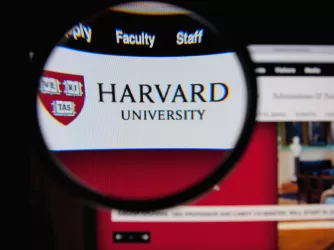Table of Contents
Nope to SCOPE: FIRE sues to block Texas’ unconstitutional internet age verification law

- The SCOPE Act, set to take effect Sept. 1, would pressure websites to collect adult Texans’ IDs or biometric data before they can access lawful content online.
- FIRE is suing on behalf of four plaintiffs from all walks of life to prevent the law from taking effect and infringing on the rights of Texans of all ages.
- Texas is not the first state to attempt to childproof the internet — and courts have already blocked similar laws in California, Arkansas, Mississippi, Indiana, and Ohio.
AUSTIN, Tx., Aug. 19, 2024 —Texans browsing your favorite websites, beware. If the state has its way, starting next month, the eyes of Texas may be upon you.
On Friday, the Foundation for Individual Rights and Expression sued Texas Attorney General Ken Paxton to halt enforcement of the Securing Children Online through Parental Empowerment Act, or “SCOPE Act,” an unconstitutional attempt to childproof the internet. The act mandates that platforms ask for and register the age of their users, and for certain platforms to verify their users’ ages. It also forces platforms to prevent minors from being exposed to “harmful” content. FIRE is seeking a court order to stop the law before it goes into effect on Sept. 1.
“In a misguided attempt to make the internet ‘safe,’ Texas’ law treats adults like children,” said FIRE Chief Counsel Bob Corn-Revere. “But even minors have First Amendment rights. Whether they’re 16 or 65, this law infringes on the rights of all Texans.”
Signed in 2023, the SCOPE Act requires social media platforms to register the age of every new user. Under the law, platforms would be forced to track how much of their content is “harmful” to minors and, once a certain percentage is reached, force users to provide government ID or biometric data to demonstrate that they are 18 or older.
In other words, the law would burden adults who want to view content that is fully legal for adults — a violation of the First Amendment. For those who understandably don’t trust a third-party website with their driver’s license or passport, Texas’ law effectively bans accessing constitutionally protected speech.
Texas’ law also requires digital service providers to prevent minors from being exposed to “harmful material,” which the state defines as anything that “promotes, glorifies, or facilitates” a host of behaviors, including suicide, drug abuse, bullying, harassment, or sexual exploitation. That’s far too vague to pass constitutional muster — whether an image, video, or statement discusses or depicts a controversial behavior, and whether it crosses the line into glorifying or promoting it, is an entirely subjective judgment.
In practice, the SCOPE Act will force platforms to err on the side of caution by censoring all discussion of those topics. This is a problem, in part because many online conversations about topics like drug use and suicide aren’t harmful to minors: They’re lifesaving.
FIRE is representing four different plaintiffs from all walks of life whose rights would be threatened by the SCOPE Act:
- Brandon Closson is a 32-year-old software engineer living in Austin who uses Instagram and other social networks to talk frankly and humorously about his experiences with bipolar disorder. The SCOPE Act could prevent his younger followers from seeing his posts about his coping strategies — information that might help them when they need it the most.
- M.F. is a 16-year-old rising high school junior from El Paso and a budding musician who uses social media to learn, read the news, connect with friends, and find musical inspiration. He’s also a passionate defender of free speech who is concerned that Texas is blocking his access to important content–such as preventing him from researching for a school debate about marijuana legalization.
- The Ampersand Group is an Austin-based company that handles advertising and marketing for nonprofits, government agencies, and local businesses. It runs campaigns on issues like gun violence prevention, public health, and sex-trafficking awareness. The SCOPE Act would hinder its ability to do important advocacy targeted to the young adults who might need it the most.
- Students Engaged in Advancing Texas represents a coalition of Texas students who seek to increase youth visibility and participation in policymaking. SEAT uses social media accounts to share opportunities, news, and calls to action with Texas students from middle school to college. Currently, more than 20% of SEAT’s Instagram audience is under 18. Thanks to the SCOPE Act, they could be blocked from learning about legislation that affects them personally.
“Texas has chosen a restrictive and simplistic solution to deal with complex problems. But social media is like any other form of communication — it can be used for good or bad purposes,” said Corn-Revere. “Cutting off help for minors battling mental illness or sexual abuse doesn’t make anyone safer.”
FIRE was also in federal court last week fighting to block Utah’s age verification bill from taking effect in October. Previous attempts by legislatures to child-proof the internet were also blocked by courts in California, Arkansas, Mississippi, Indiana, and Ohio. A court even blocked a similar age verification provision in Texas, before the U.S. Court of Appeals for the Fifth Circuit overturned the ruling — which is now headed to the Supreme Court for review.
“The SCOPE Act combines all the worst aspects of previous bills,” said FIRE Legal Director Will Creeley. "It has Utah's age restrictions, California's age-appropriate design problems, and Texas' bad ‘harmful to minors’ standard. It's the Frankenstein's monster of internet speech control."
Ambika Kumar, David Gossett, Adam Sieff, and Chelsea Kelly of Davis Wright Tremaine LLP are serving as co-counsel for the lawsuit.
The Foundation for Individual Rights and Expression (FIRE) is a nonpartisan, nonprofit organization dedicated to defending and sustaining the individual rights of all Americans to free speech and free thought — the most essential qualities of liberty. FIRE educates Americans about the importance of these inalienable rights, promotes a culture of respect for these rights, and provides the means to preserve them.
CONTACT:
Alex Griswold, Communications Campaign Manager, FIRE: 215-717-3473; media@thefire.org
Recent Articles
FIRE’s award-winning Newsdesk covers the free speech news you need to stay informed.

Revoking Harvard’s tax-exempt status will threaten all nonprofits

Grandpa’s advice for the new wave of American censors

FIRE POLL: Only 1/4 of Americans support deporting foreigners for pro-Palestinian views


